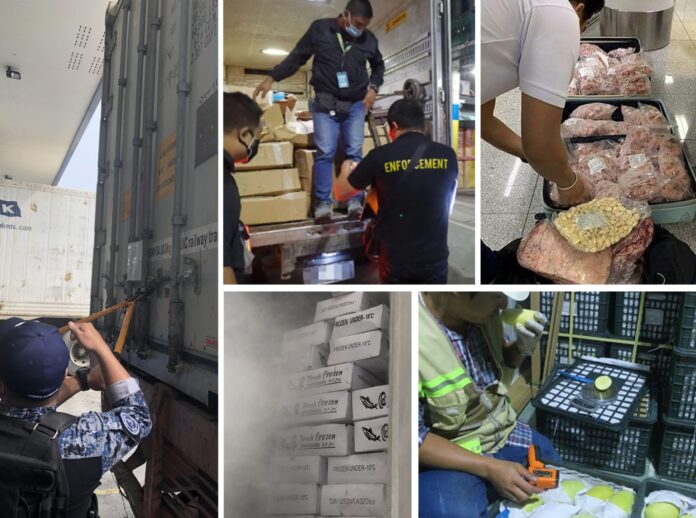-
Agriculture Secretary William Dar has ordered intensified first border inspection and control procedures to ensure safety of imported food items and other agri-fishery related products
-
The Bureau of Animal Industry, Bureau of Fisheries and Aquatic Resources, and Bureau of Plant Industry were directed to strictly implement established sanitary and phytosanitary measures, food safety standards, and other regulatory measures in conducting first border inspection and control
-
The agencies were ordered to review methods to ensure the first border inspection system goes smoothly
Agriculture Secretary William Dar has ordered the implementation of stricter first border inspection and control of all imported food items and other agri-fishery related products to ensure food safety.
In Department of Agriculture (DA) Memorandum Order (MO) No. 30, Dar ordered DA-attached agencies and bureaus to strictly implement established sanitary and phytosanitary measures, food safety standards, and other regulatory measures under their regulatory powers and jurisdiction when conducting first border inspection and control.
These bureaus include the Bureau of Animal Industry (BAI), Bureau of Fisheries and Aquatic Resources (BFAR), and Bureau of Plant Industry (BPI).
Signed on April 29, DA MO 30 also directs the agencies to review and revise their respective strategies and methods to make sure first border inspection is smoothly implemented.
In the memo, Dar noted it “is the duty of the state to protect and promote the right to health of the people and instill health consciousness to its citizens, as well as protect them from trade malpractice and substandard or hazardous products.”
He added: “Thus, it is necessary for the DA Family to maintain a farm-to-fork food safety regulatory system that ensures a high level of food safety, promotes fair trade, and advances the global competitiveness of Philippine agri-fishery products.”
Section 12 of Republic Act No. 10611 or the Food Safety Act of 2013 provides that imported foods undergo cargo inspection and clearance procedures by the DA and Department of Health (DOH) at the first port of entry to determine compliance with national regulations.
DA and DOH inspections must be done before tariff and other charges are assessed by the Bureau of Customs (BOC).
BAI—under Section 5 of RA 3639, which created BAI—has the duty and regulatory powers to issue animal quarantine, inspection and sanitation, as well as regulate the importation of animals, among others.
BPI, under Section 10 of Presidential Decree No. 1433-1978, has the duty and power to examine imported plants, plant-based products and other materials capable of harboring plant pests and potential animal pests, and to administer necessary measures to effectively implement the provisions of the law.
BFAR, meanwhile, is mandated under Section 67 of the Fisheries Code of 1998 to monitor and regulate the trade of fishery and aquatic resources, particularly the examination of all fish and fishery exports and imports that may be a source or medium of fish pests or diseases, and to ensure that the quality of commodities meet international standards.
Dar said shipments that fail to comply with the Food Safety Law and other applicable laws will be confiscated and properly disposed of immediately.
DA earlier said it would establish in six ports this year the Philippines’ first border inspection facilities, or agricultural commodity examination areas (ACEA), that will be used to inspect imported animals, plants, meat, and other farm and fishery products.
READ: Six ports to house DA examination areas for agri imports
The ACEAs will be set up at the Manila International Container Terminal, Manila South Harbor, Cebu, Batangas, Subic, and Davao.





